Project coordinator Anastasiia Pokaz explains how the resilient spirit of musicians from Odesa will find new audiences in 2024 through the MEMENTO ODESA tour and EP
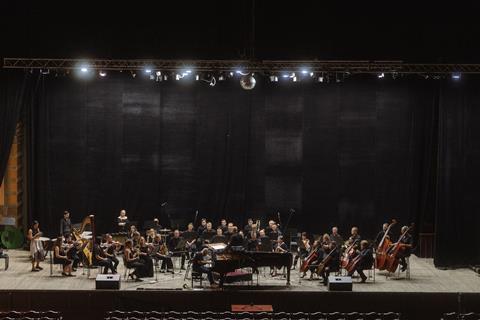
Discover more Featured Stories like this in The Strad Playing Hub
Memento Odesa, a project that stands as a testament to the indomitable human spirit, was recorded against the tumultuous backdrop of the war-torn streets of Odesa. The music, composed by Sebastian Studnitzky and recorded with the Odesa Symphonic Orchestra under the baton of Volodymyr Dikiy reverberates the spirit of a city under siege, capturing the glow of memories of what now feels like a distant past, and the uncertainty of the future.
On the morning of 24 February 2024, I put the Ella Fitzgerald and Louis Armstrong record on and asked my husband to join me for a game of Scrabble. My brain struggled to adapt to the new game rules, begging for the comfort of familiar habits in the face of a cruel reality. After spending two days in the petrified city, filled with suspense, my husband and my mother asked me to leave Ukraine. I remember the feeling of hugging my husband, wondering if we would ever see each other again. My best friend and I crossed the Moldavian border on foot because waiting in a car line would take about 50 hours, and we couldn’t even predict what would happen in the next five minutes. In the following 40 days, we journeyed through five countries, eventually arriving in Berlin. It was here that I got my dream job at the XJAZZ! Festival. Throughout our one-and-a-half years together, our ideas regarding how to support Ukraine, its art, and its artists evolved, and our goals expanded.
In the early summer of 2023, we came up with the idea of recording Sebastian Studnitzky‘s project MEMENTO ODESA with the Odesa Symphonic Orchestra. The idea came, as I knew he wished to both support Ukraine and develop the project. However, I was conflicted. On the one hand, I wanted to take Sebastian to my hometown and introduce him to the beauty of my beloved places and people. On the other hand, I couldn’t guarantee a safe trip, as I didn’t know what to expect.
Odesa’s classical music scene has a strong foundation and connection. Prior to the war, the city’s classical music scene not only flourished with local talent but also hosted renowned musicians such as Daniel Hope, Evgeny Kissin, Pinchas Zukerman, Joshua Bell, Matthias Goerne, Michael Guttman, Thomas Hampson, and the Zurich, Berlin, and Brussels Chamber Orchestras. With this in mind, we got in touch with the conductor and artistic director of the Odesa Philharmonic Theater Volodymyr Dykiy, who embraced our vision of the recording with an open heart and mind. He assembled an orchestra of musicians from the Odesa Philharmonic Theatre and the Odesa National Academic Opera and Ballet Theatre. Within a month, everything was in place – the concert hall, the orchestra, and the rehearsals.
When we finally were on our way to the Philharmonic Hall, I asked Sebastian not to build any expectations for the upcoming recording, as I couldn‘t predict the mental and physical state of the team, given the daily pressures of the war. Although I knew that the concerts and rehearsals were continuing, the current context had changed everything. However, when we entered the hall and saw the orchestra, we were met with the brightest eyes full of happiness and hope. I will remember these eyes forever – the eyes of the people starving for creativity! During the next three days of rehearsing and recording, I had this strong feeling that I was witnessing magic. The synergy between Sebastian, the conductor, and the musicians was out of this world, and the music created was surreal. This process engaged the artists and the entire team on a level that was beyond just work – it was like a breath of fresh air, awakening their true spirits. As the recording process drew to a close, the lingering question hanging in the air was: ’How can we extend this feeling?’ It was clear to me that this music needed to be heard, because this is not just music – it is a message.
While the war remains awful, disgusting, and unfair, the circumstances I find myself in have brought the most beautiful feeling I’ve ever experienced into my life – the feeling of being truly alive
Attending the MEMENTO ODESA concerts would give the audience a truly special experience, extending beyond just listening to outstanding music. While the war remains awful, disgusting, and unfair, the circumstances I find myself in have brought the most beautiful feeling I’ve ever experienced into my life – the feeling of being truly alive. This is the feeling that I want to share with the audience on the MEMENTO ODESA tour. Together we will experience the magic of the music and the spirit of Odesa.
The series of MEMENTO ODESA concerts in 2024 will collect donations for local organisation, Children of Heroes: https://childrenheroes.org/
Find out more about MEMENTO ODESA in the video below:
Read: ‘Music must be played, life must go on’: an update from Ukrainian violin maker Orest Putsentela
Read: ‘The voice of a generation’ - Young Ukrainian musicians: Fighting for the future
Read more Featured Stories like this in The Strad Playing Hub
The number one source for playing and teaching books, guides, CDs, calendars and back issues of the magazine.
In The Best of Technique you’ll discover the top playing tips of the world’s leading string players and teachers. It’s packed full of exercises for students, plus examples from the standard repertoire to show you how to integrate the technique into your playing.
The Strad’s Masterclass series brings together the finest string players with some of the greatest string works ever written. Always one of our most popular sections, Masterclass has been an invaluable aid to aspiring soloists, chamber musicians and string teachers since the 1990s.
American collector David L. Fulton amassed one of the 20th century’s finest collections of stringed instruments. This year’s calendar pays tribute to some of these priceless treasures, including Yehudi Menuhin’s celebrated ‘Lord Wilton’ Guarneri, the Carlo Bergonzi once played by Fritz Kreisler, and four instruments by Antonio Stradivari.



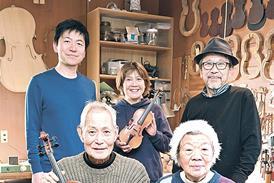
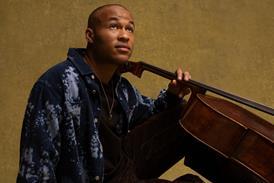




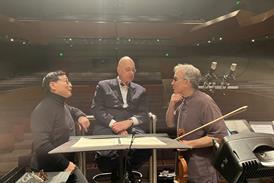


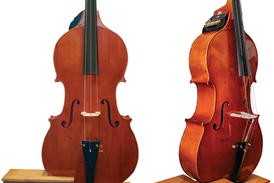






























No comments yet